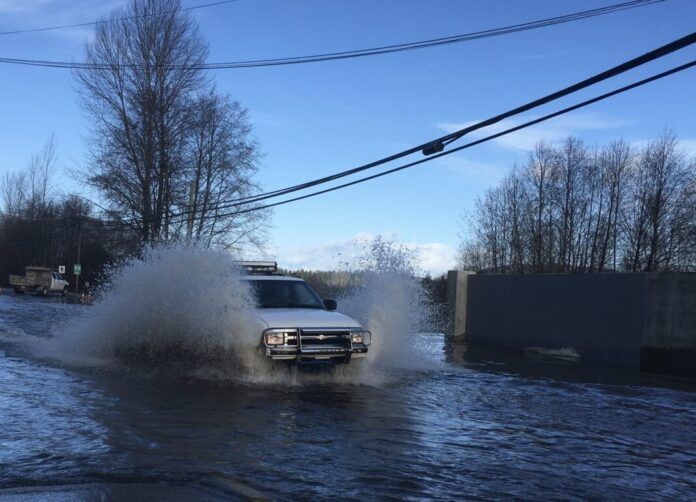Canadian families face a financial chill as extreme weather caused by climate change increasingly affects the economy.
Last year, more than $2-Billion in insurance payouts were recorded — not counting repair costs for public infrastructure and uninsured losses.
The Canadian Climate Institute says households will be hit hard.
Everyday life will become even less affordable as economic growth slows while taxes increase to pay for climate disasters, job losses mount, and goods become more expensive because of supply chain disruptions.
Job losses could reach half-a-million by mid-century, and increase to 2.9 million by the end of the century.
Manufacturing, the services sector, and transportation will be particularly hard hit.
Regardless of how well Canada and other countries do at cutting emissions, annual disaster recovery costs are expected to reach five-Billion dollars in Canada by 2025 and 17-Billion by 2050.
The institute says governments should double down on aggressive reductions in emissions.
The institute says reducing emissions will result in major benefits after mid-century.
The low-emissions scenario would see damages reduced by more than half compared to the high-emissions scenario.
Proactive adaptation will bring major benefits regardless of the emissions trajectory, and over a shorter time horizon.
Every dollar spent on adaptation measures saves as much as $15.
The Canadian Climate Institute says a combination of proactive adaptation and global emissions cuts will be the most effective in mitigating damages, reducing Canada’s total real GDP losses by 75 per cent.
Among the report’s key findings:
- Climate-induced damages are already here and they’re adding up. By 2025, climate impacts will be slowing Canada’s economic growth by $25 billion annually, which is equal to 50 per cent of projected GDP growth.
- All households will lose income, and low-income households will suffer the most. Low-income households could see income losses of 12 per cent in a low emissions scenario and 19 percent in a high emissions scenario by the end of the century—markedly higher losses than the median income group.
- Climate change is a job-killer. Job losses could double by mid-century, and increase to 2.9 million by end-of-century.
- Adaption pays off big. Every dollar spent on adaptation measures saves $13-$15, including both direct and indirect economy-wide benefits.
- Limiting further warming, while adapting to the warming already baked in, pays off bigger. Taking proactive adaptation measures cuts climate costs in half, and if these are combined with global mitigation measures, then costs are cut by three-quarters.
Damage Control: Reducing the costs of climate impacts in Canada




